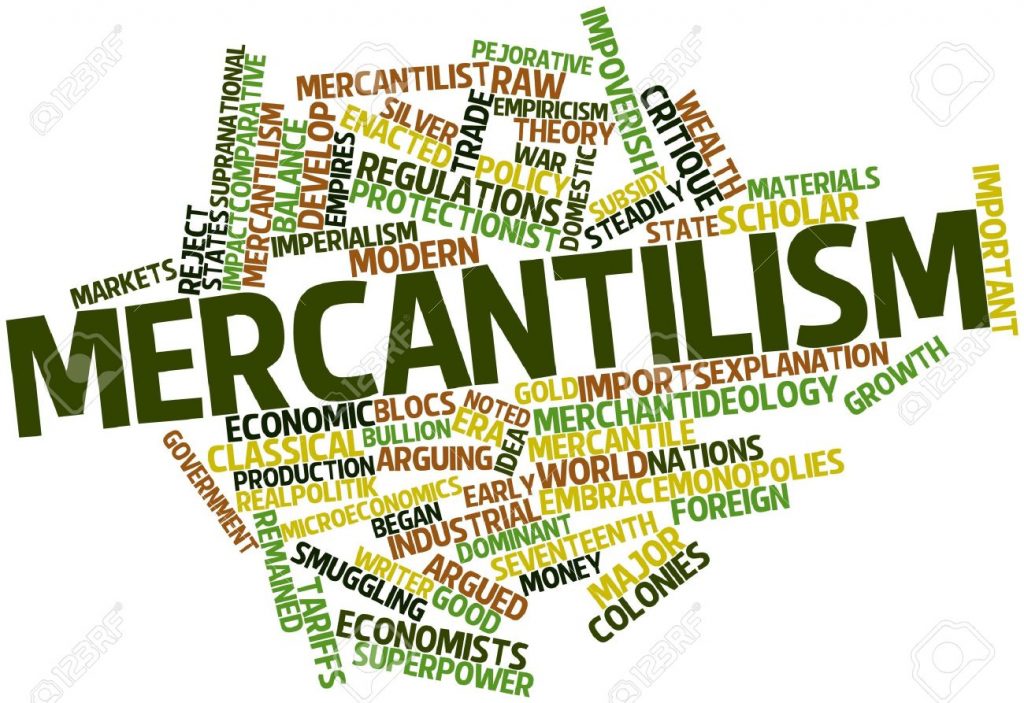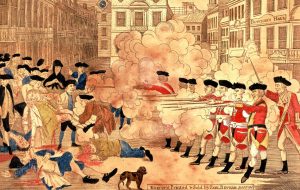Mercantilism is one of the most influential economic doctrines in the history of economics; however, the school that dominated European thought for two centuries is now considered a historical artifact. According to scholar Lars Magnusson, no self-respecting economist would associate himself or herself with mercantilism in today’s society.1

Mercantilism was the dominant economic policy most associated with the Early Modern period of the 16th and 17th centuries. During this era, the only true measure of a country’s wealth and success was thought to be the amount of gold and silver reserves that a nation possessed. In order to add precious metals to a nation’s reserves, it would seek to maximize its net exports and minimize its imports in order to secure its prosperity. Countries that had more wealth could in turn raise and maintain stronger armies and navies, and thus be more powerful. Moreover, according to the doctrine of mercantilism, the gold and silver reserves in the world were thought to be limited. Therefore, one’s gain in precious metals would come at some other country’s expense. Trade was a zero-sum game. For example, the gain from trade for England, mercantilism taught, would be a loss for France or Spain. The best way to ensure a nation’s prosperity was by limiting imports and increasing exports, thereby generating a net inflow of gold and silver, thus increasing the country’s overall gold stocks. Every European nation was trying to find a market for its exports to bring wealth while limiting imports, which would otherwise transfer wealth to others.2
Mercantilism was an economic theory that placed the nation, not the individual, at the center of economic activity. Economic nationalism, the effort to boost exports, was seen as a state-sponsored endeavor. States backed domestic production. Governments applied many forms of protectionist policies in order to promote efficient domestic consumption and maximize the export of surplus production. According to the famous British Navigation Act of 1651, all imports to England had to be carried to English ports on English ships. Colonial exports to Europe had to first land at an English port before going any further. These laws sharply restricted colonial trade with anyone else but England. With mercantilism, each country sought to export as much as possible while preventing imports. As a result, the economic importance of colonies to the success of colonizing powers became vital.3
According to the famous British Navigation Act of 1651, all imports to England had to be carried to English ports on English ships. Colonial exports to Europe had to first land at an English port before going any further. These laws sharply restricted colonial trade with anyone else but England. With mercantilism, each country sought to export as much as possible while preventing imports. As a result, the economic importance of colonies to the success of colonizing powers became vital.3

Colonies played a critical role for European countries. Each country sought to become self-sufficient so that they would not need to import goods from the other European powers. Colonies provided the precious metals and raw materials that European countries needed but could not produce at home. They were also markets for finished goods. According to mercantilism, colonies could only trade with their mother nation, and the direction of wealth should flow to the mother nation. In order to protect colonial trade, each European nation developed powerful navies, which protected its nation’s trade routes.4
The collapse of mercantilist ideology can be attributed to Adam Smith’s classic book The Wealth of Nations. Smith argued that the wealth of a nation does not consist in the amount of gold or silver stashed in its treasuries, but in the productivity of its workforce. He stated that trade can be mutually beneficial for nations, and that the general growth of wealth did not come at the expense of others, but that a “rising tide” of growth would benefit all, which is directly opposed to the ideology of mercantilism.5
- Lars Magnusson, Mercantilism: the shaping of an economic language (London: Routledge, 1994), 8. ↵
- John Maynard Keynes, The general theory of employment, interest and money (New York: Harcourt, Brace and Co., 1936), 3. ↵
- Alan Brinkley, American History: Connecting with the Past Volume 2, 15 edition (New York: McGraw-Hill Education, 2014), 26-27. ↵
- The Concise Encyclopedia of Economics, 2008, s.v. “Mercantilism,” by Laura LaHaye. ↵
- The Concise Encyclopedia of Economics, 2008, s.v. “Mercantilism,” by Laura LaHaye. ↵



85 comments
Rigel
Awesome article! Loved your use of images to explain mercantilism more in dept and the way you structured your article. Also, your article really explains the idea of mercantilism in more detail and how it affected the colonies and Europe as a whole. Also, I did not know that economists today would not associate themselves with it, I can understand why.
Rafael Portillo
Amazing! I really love the colonial era and how it all began. Your article really explained how mercantilism was and how it affected the colonies. I also learned something new that I didn’t know before hand. At first my definition for mercantilism was wrong and my idea about Adam Smith too.
Alia Hernandez Daraiseh
This article was very well written and gave important details that showed the way mercantilism existed and how it wouldn’t be a good fit in todays society. I’ve always heard the word mercantilism, but never truly grasped what it meant and the meaning behind it. This article did an amazing job at describing, and it’s very interesting to learn and understand on how each country wanted to be self-sufficient, but in a way that only focused on the nation itself instead of the individual.
Emily Davey
This article corrected one of my understandings of Adam Smith, I thought that his wealth of nations was in favour of mercantilism. I was very wrong, and I’m glad to have been corrected! The word mercantilism is said so often in many US history classes, this article really helped to define and demonstrate more clearly what the economic system really was, how it evolved, and who changed it. Adam Smith seems to be more influential and a much larger character in American and global history than I thought before. I liked how this article used the pictures too, they added a lot to the reading and complimented it quite well!
Dylan Vargas
I like how the article is put together, giving us the definition of the major word that the who article is about, then going on to explain the history behind the word. The people and countries that were involved and the whole idea around the word to bring us back to what it really is. Then at the end explaining how it ended with Adam Smith and what he did to do it and what kind of ideology that he need to stop Mercantilism as a whole.
Alexandra Camarena
I loved this article! I have learned about mercantilism in a few of my history classes, but I thought they explained it very well in the article. I also really liked the cartoon the author chose to demonstrate mercantilism. With the image, the reader is able to have a better visual understanding. I also liked how at the end of the article the author talks about how the mercantilist ideology collapsed. This is because it shows the reader not only one side of the story.
Victoria Cantu
Very well-written article, Mehmet! I knew that the definition of mercantilism is an economic system in which the government has control over foreign trade, but knowing how it functioned and concluding how shady it could be to certain colonies was captivating to read about. This article gave a great idea of how mercantilism worked and helped create a massive leap in the economy. This economic system was a great start to a prosperous economy and diversification besides the fact that it was corrupt. Overall, I enjoyed reading this article! The pictures complement the text very well!
Vanessa Fabila-Ramirez
This article give does such a good job at explaining mercantilism. Personal it was really helpful to read this article I got a better understanding of Mercantilism. Mehment you did a good job at being very informational but not boring. I like the little cartoon pictures it brings out what you are saying. I also like the how you put a picture of Adam’s book. It was a good last touch to the article.
Laura Poole
I’ve never really understood what mercantilism was until reading this article. That speaks for itself that this article was well written. I think your use of images helped me better grasp and understand the story of mercantilism. After reading, mercantilism strikes me as a selfish ideology and seemed so restrictive that it actually hurt colonies. I understand why mercantilism was left behind in the past! Good work.
Madeline Bloom
This article gave me a much better understanding of what mercantilism was back then. I knew what mercantilism is, but it was very broad. By that I mean I knew the definition of it. The photographs in this article really connects the themes of the article very well. Great job on capturing the selfish way that they ran the economy because they wanted self benefit.